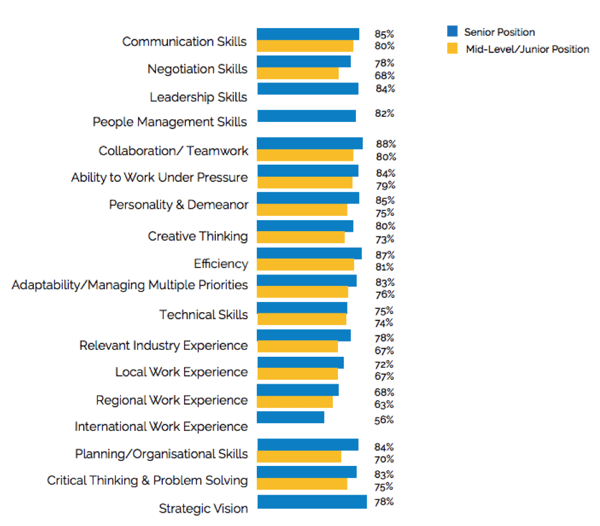
Companies around the world are very concerned with skill: Skill Development, Skill Shortages, and Skill Mismatches. We know that skills are essential, yet there is no precision on the nature of skill – we do not always find the right information on what kinds of skills we need, or how they should be developed. In general, skill is mostly misunderstood as knowledge or number of years of experience.
It is challenging, because while there are already existing education and training policies, it is tough to create intelligible and well-formed alternatives to the way things are currently being done.
We must enrich industry specific qualifications by recognising depth and complexity of knowledge as core components of capability
Training for a job is limited to the requirements of the job, and does not fulfill skill development, whereas education or training for an occupation is the foundation of development and progression. In this way, education and occupational advancement are connected.
In most cases of hiring, the roles are defined based on existing or past practice; while capabilities frameworks are a good guideline for certain qualities required in employees, individuals also need for their respective jobs to allow them to progress through a career that fulfills the requirements of different professions.
It is also important to discuss the changing fauna of work and the factors that support innovation – the nature of innovation and innovative workplaces. If we discuss issues that arise in matching skills, qualifications and jobs, maybe the gap is in defining and designing capabilities frameworks based on employability skills. Such skills are not normally considered because employers only look for skills required to fulfil a role or perform a job.
Generic skills such as language, communication, and logistical know-how are not enough. Creative problem solving, self‐learning, and soft skills such as teamwork, negotiation skills, self‐confidence, motivation for work including initiative, responsibility, commitment, and interest – these are usually missing due to mismatches in capabilities and expected outcomes.
In today’s world, there is a need for more dynamic professionals. Multiple skills such as digital literacy, academic skills, technical skills, emotional maturity and behavioural balance, and multicultural awareness and understanding are all components of a great professional.
Standards and Assessment: Developing a capabilities approach to skills
Changes to the economy and society are putting pressure for a strong need to develop sectoral wide qualifications in UAE.
While analysing the skills concept, it gives us different dimensions but mainly:
- Intellectual skills – a basis of general skills and general educational competence
- Technical skills – to perform particular tasks or professional skills
- Behavioral skills – personal skills required to succeed as an employee
It is said that competency has four components: Task skills; Task management skills; Contingency management skills; and Job/role environment skills.
Competency is demonstrated to the standard required in the workplace and covers all aspects of workplace performance
It should include:
- Performing individual tasks;
- Managing a range of different tasks;
- Responding to contingencies or breakdowns; and
- Dealing with responsibilities of the workplace, including working with others.
When it comes to determining how important particular skills are for certain roles, employers tend to put less value on junior/mid-level positions, in comparison to senior roles.
It gives an edge to professionals who gain additional credentials. There are currently very few qualification frameworks models available on the most important skills in the MENA region.
We at TÜV are focusing on developing competencies in UAE:
Most important skills for Senior, Mid/Junior level positions
 (Reference: socialtalents.com – skill gap crisis in the Middle East published in 2016-17)
(Reference: socialtalents.com – skill gap crisis in the Middle East published in 2016-17)
Our development frameworks will help you strengthen these skills:
- Products to Process: Training packages to Qualification and Accreditation based on International Standards
- Generic Training for specialised skillsets for individuals
These frameworks help advance the education sector and spread the reach of greater competencies. They propose development of an individual and their potential to proceed to further levels – to become successful both personally and professionally.
For more information, speak with our experts:



